
Research Shows That Rats Show Empathy, But Are Selective Regarding Fur Color
While for the longest time, scientists and philosophers argued whether animals are capable of emotions and empathy, some researchers set out to prove their point. And with the intelligent animals like Koko the Gorilla, it’s hard to deny that animals are capable of feeling and expressing human-like emotions.
In discussions about emotional intelligence in animals, people like to bring up their sweet dogs, elephants, and a variety of primates, however, no one ever uses a lab rat as an example. After all, even linguistics show that rats don’t have the best of reputations in our world, with it being common to compare a horribly behaved person to a rat. However, researchers at the University of Chicago decided to see if these smart animals not only have feelings, but they are able to feel other’s emotions too!
“Finding empathetic behavior in rats is exciting because it tells us that this is a biological inheritance,” professor Mason told Bored Panda. She also added that it means that we don’t teach helping. “In fact, what appears to be the case is that around four years of age, kids start to learn who NOT to help,” the scientist revealed.
Scientific research reveals that rats are capable of empathy, even with strangers
The scientific experiment that spanned over few years was headlined by Professor of Neurobiology Peggy Mason, who, after a 25-year focus on the cellular mechanisms of pain modulation, switched her focus to the biological basis of empathy and helping.
The first science experiment, which was started in 2007 and published in 2011, focused on whether rats help each other in distress under different circumstances. Professor Mason explained that it was her colleague’s Inbal Ben-Ami Bartal’s idea, and she was happy to be invited to the project (she later dedicated her entire lab to helping and empathy). ” I remember that we knew we had “it” when Obama nominated Sonia Sotomayor in 2009 and made a big deal out of her empathy,” she explained.
The basis of the research was that rats showed basic emphatic tendencies, like when one baby cries, other babies cry. However, they wanted to dig deeper and see if rats would go beyond emotion-contagion. It would require for a rat to downplay its fear from emotional contagion in order to help the rat in distress.
Together with Inbal Ben-Ami Bartal and Jean Decety, professor Mason set up an experiment where one rat was trapped in a tube while its cage-mate is released into the “arena” where only the free rat can open the door of the tube. What the initial research revealed is that within a short period of time, the free rat tried to figure a way to help out its cage-mate. In 12 days of testing, the free rat finally figured out how to open the door and released its friend within the 3-6 days, proceeding to jump around and follow the now free rat. It appeared as though they were celebrating!
During the next few days, the free rat, once put in the “arena,” almost immediately releases the trapped cage-mate. The researchers pushed their experiment one step further by placing two containers in the space, one with the trapped rat and the other with five chocolate chips. The team behind the study was shocked when the free rat not only opened both containers in no particular order but also shared the treats with the liberated rat instead of opening the container with chocolate first and claiming all the goodies for itself.
The first animal intelligence study concluded that releasing its trapped cage-mate was on the same level as getting a chocolate treat in the rat’s books. The researchers also argued that it was the trapped rat that elicited such behavior, as the free rat would not open the door if the tube was empty or contained a toy rat. It would also open the door even if it didn’t get the chance to be reunited with the trapped rat, meaning that it didn’t just merely want to play with it.
Professor Mason continued her research into empathy and rats and presented some surprising results in the upcoming years. Her later study, conducted in 2014, showed that rats are “selective” about whom they empathize with. When introduced to a different, unknown strain of rats, the free rat would not free the trapped rat. The research yielded the same results if the free rat was grown in isolation and wasn’t socialized even with its own strain of rats. What it basically means is that if a rat has never seen another rat of its own strain, it won’t open the door. “We call this the switched-at-birth or Mowgli experiment,” professor Mason added. The research drew the conclusion that empathy is based on the rat’s social experiences, but is not limited to only the individual rats it knew, as the free rat would help a stranger rat if it was ever exposed to its strain.
To further prove her point that rats are driven by empathy, professor Mason ran another experiment where the free rats were given anti-anxiety medicine, and because of it, they no longer set the trapped rat free. The researchers concluded that because the free rat could no longer feel stress and emotions by empathy, it wouldn’t understand what the trapped rat was feeling and felt no urgency to set it free. You can watch the videos below for a more in-depth explanation of the research, or check out Peggy Mason’s blog here. And if this research got you interested in neurobiology, you can also see the course professor Mason is teaching on Coursera.
Peggy Mason also informed us that they are continuing work on this study, with several extensions. “One experiment that we’re working on now is to see if we can make a rat familiar with a foreign strain of rat more quickly and differently than two weeks of housing,” the professor elaborated. The team wants to see is sharing a “dinner party” with plenty of treats will yield the wanted results. “In general, we have been interested in figuring out what it takes to make one rat familiar enough with a different strain of rat to be helpful to that strain,” she concluded.
You can watch how rats respond to strangers in the video below
Watch the video on how the experiment went when anti-anxiety medicine was introduced
10Kviews
Share on FacebookRats are such underrated beasts. Apart from being some of the coolest and most adaptable animals, they have extremely complicated social lives. My friend used to own fancy rats and the zoo club I attended as a kid also did. Intelligent, gentle toward their owners and endlessly entertaining in their ways, they are one of the best pets I've ever come across. The only issue is fast ageing. I wish they made some super resistant lines of pet rats that lived longer, healthier lives!
I wanted two pet rats (when I was researching I learned they do better with a friend) when I was around 10, but my mom said no because she thought rats were gross. Anyways I just thought that rats are surrounded by a stupid stigma when really they are super intelligent (and pet rats are clean ]:/ )
Rats are actually very clean creatures : they wash about as muc as cats. But they (and/or their fleas) are vectors for a bunch of 'gross' things (to us); think plague, for example.
Load More Replies...Fascinating. However never ceases to amaze me how much the "intelligent" species underestimates the ability of the rest of the gene pool based on lack of verbal communication.
True. Same happens within same human species, I noticed. If you're a fellow human being who doesn't speak the same language, or does speak, but has poor communication skills in general, many people will deem them as fools. Sadly, happens to the deaf as well (until the moment it is discovered they're deaf). So, yeah, fear of the unknown kinda makes us unethically stupid sometimes.
Load More Replies...Rats are such underrated beasts. Apart from being some of the coolest and most adaptable animals, they have extremely complicated social lives. My friend used to own fancy rats and the zoo club I attended as a kid also did. Intelligent, gentle toward their owners and endlessly entertaining in their ways, they are one of the best pets I've ever come across. The only issue is fast ageing. I wish they made some super resistant lines of pet rats that lived longer, healthier lives!
I wanted two pet rats (when I was researching I learned they do better with a friend) when I was around 10, but my mom said no because she thought rats were gross. Anyways I just thought that rats are surrounded by a stupid stigma when really they are super intelligent (and pet rats are clean ]:/ )
Rats are actually very clean creatures : they wash about as muc as cats. But they (and/or their fleas) are vectors for a bunch of 'gross' things (to us); think plague, for example.
Load More Replies...Fascinating. However never ceases to amaze me how much the "intelligent" species underestimates the ability of the rest of the gene pool based on lack of verbal communication.
True. Same happens within same human species, I noticed. If you're a fellow human being who doesn't speak the same language, or does speak, but has poor communication skills in general, many people will deem them as fools. Sadly, happens to the deaf as well (until the moment it is discovered they're deaf). So, yeah, fear of the unknown kinda makes us unethically stupid sometimes.
Load More Replies...
 Dark Mode
Dark Mode 

 No fees, cancel anytime
No fees, cancel anytime 






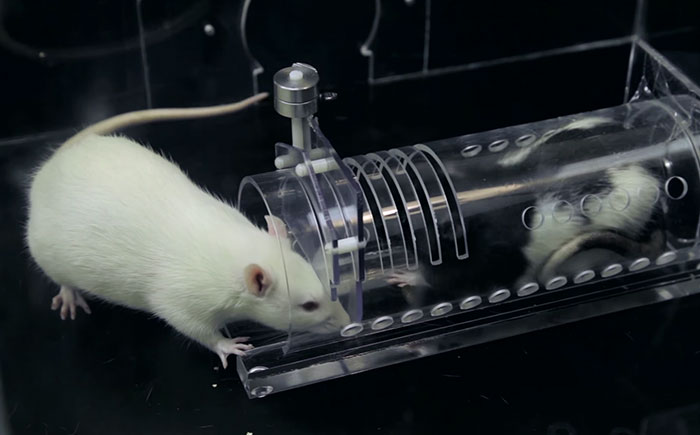
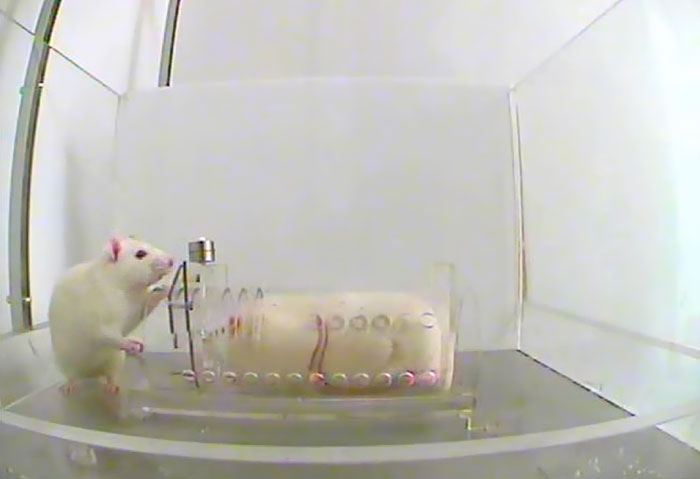

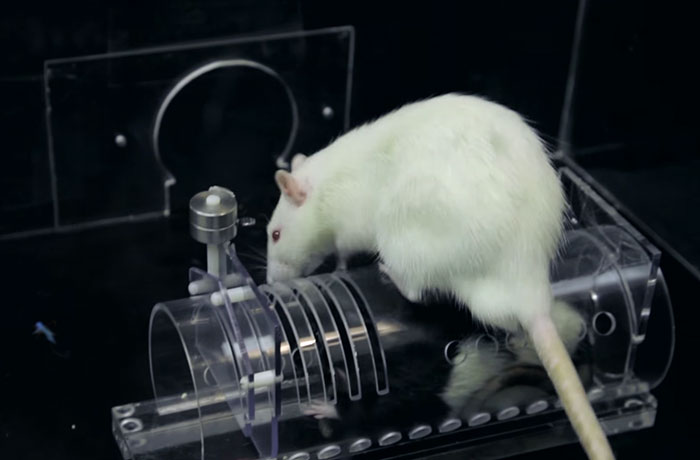
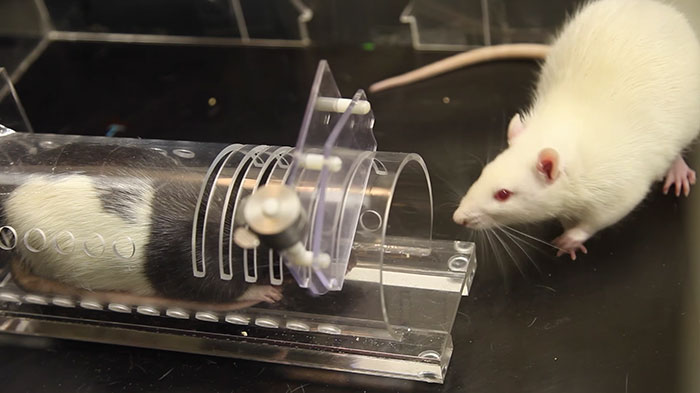
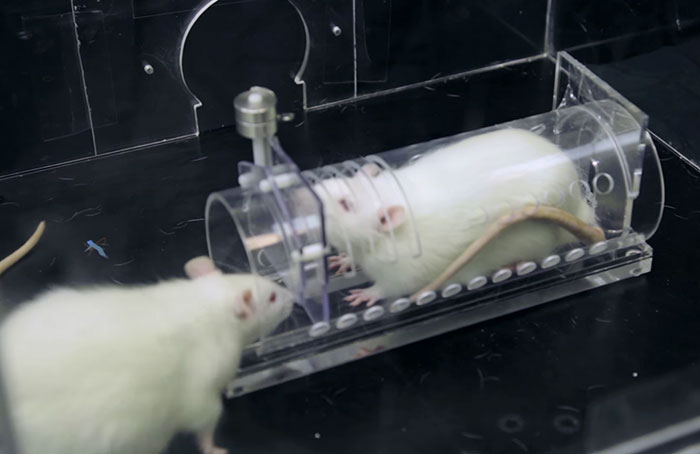
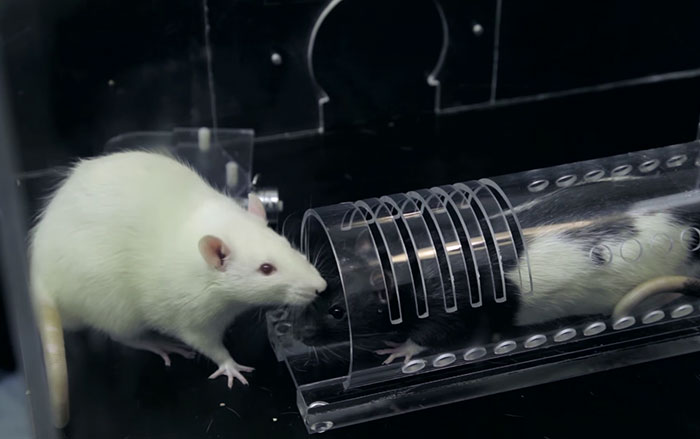
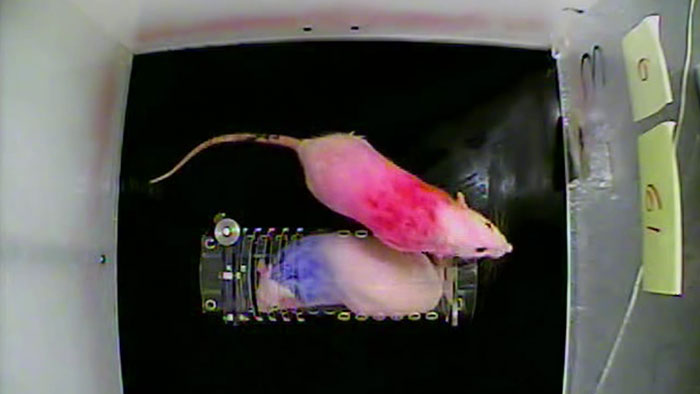
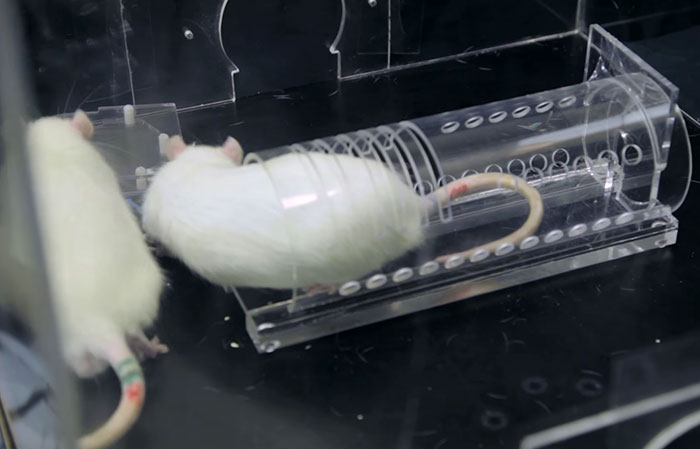
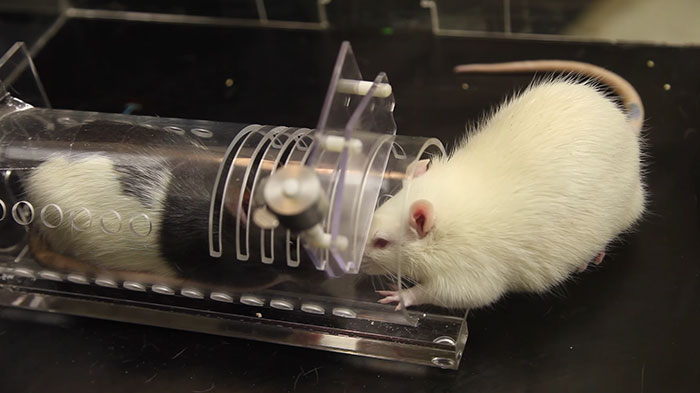
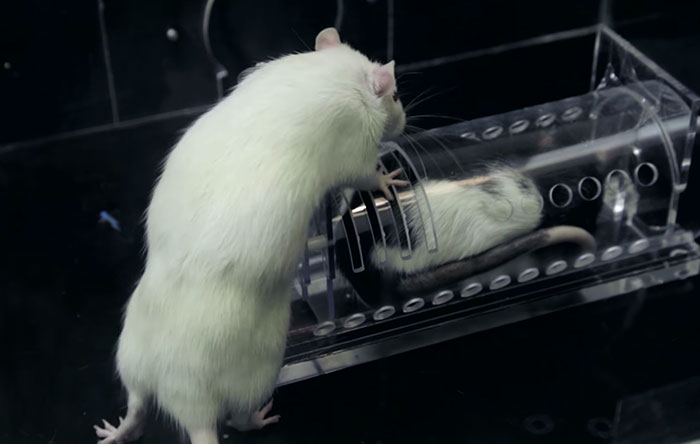











































127
50